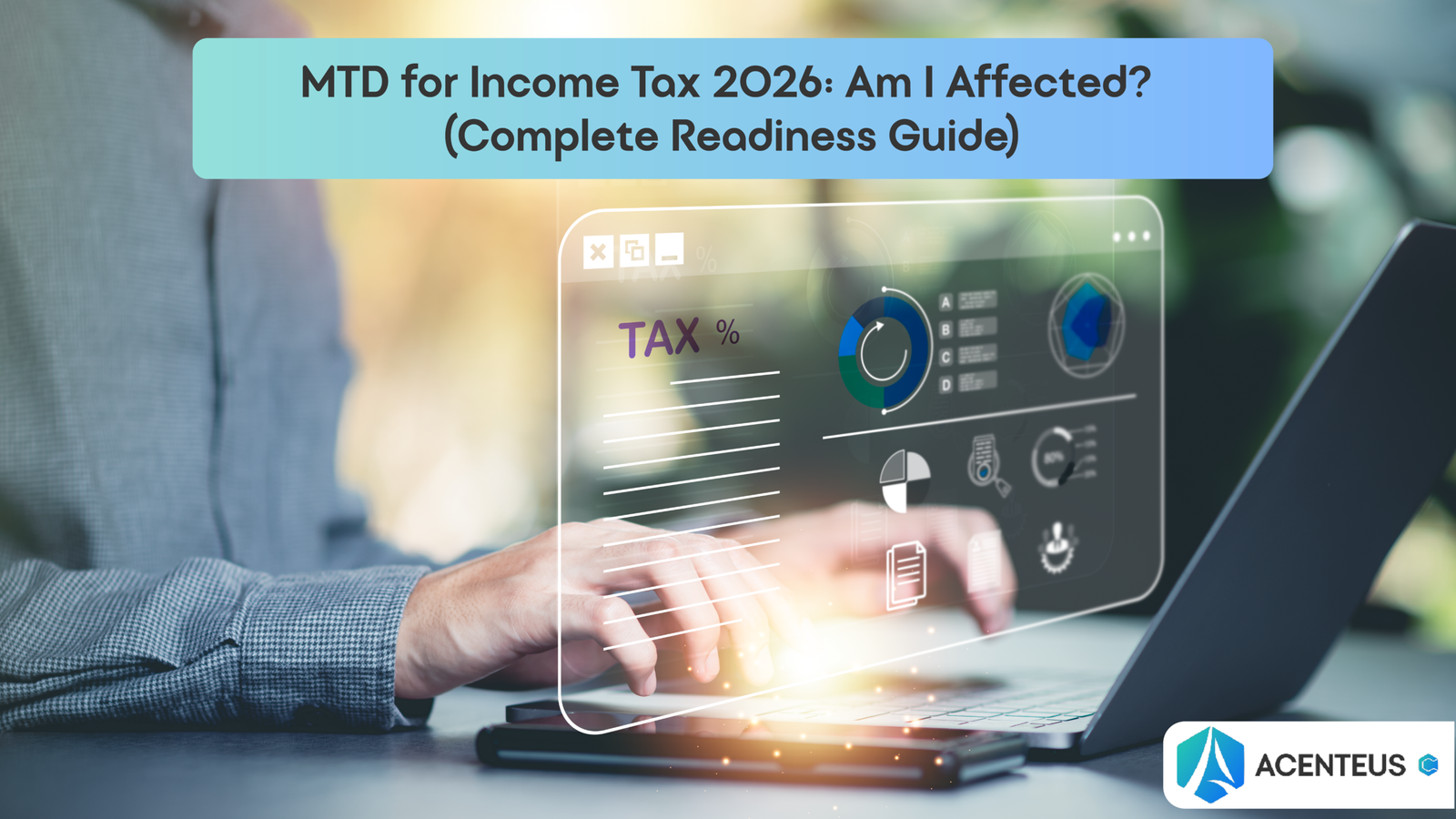Executive Summary
The UK accountancy profession faces an unprecedented talent crisis. With 94% of firms reporting that recruitment issues are now holding back growth and 74% unable to take on new clients due to staffing constraints, traditional hiring approaches have reached breaking point. This comprehensive guide explores how strategic outsourcing provides a proven solution to recruitment headaches, offering immediate access to qualified professionals while eliminating the costs and risks of traditional hiring.
The Scale of the Crisis: UK Accounting Talent Shortage 2025
The numbers paint a stark picture of an industry in crisis. The latest research reveals the deepest talent shortage in the profession’s modern history, with consequences rippling through firms of all sizes.
The Numbers: Dramatic Decline in Available Talent
Recent data shows a 36% decline in candidates per vacancy year-over-year, while 75% of experienced practitioners are expected to retire within the next decade. Recent industry research from professional bodies and labour statistics shows firms are facing significant talent shortages and upward salary pressureThis talent drought has created a perfect storm: rising demand for accounting services coinciding with a shrinking pool of qualified professionals. The result is unprecedented pressure on existing teams and difficult decisions about client acceptance.
Regional Impact: Beyond London’s Talent Magnet. While London continues to attract top talent, regional firms across Manchester, Nottingham, Birmingham, and smaller cities face even greater challenges. The talent shortage is most acute outside major metropolitan areas, where smaller practices cannot compete with Big Four salaries or comprehensive benefits packages.
Regional practices report recruitment timelines lengthened by 40-60 days compared to pre-2020 levels, with many positions remaining unfilled for months. This geographical disparity in talent availability forces firms to either relocate, dramatically increase salary offerings, or explore alternative staffing models.
The Demographic Cliff
Industry research reveals a concerning demographic shift: 30% of firms now report more professionals approaching retirement than entering the profession. This trend, combined with declining university enrolment in accounting programmes, suggests the shortage will intensify rather than resolve naturally.
The implications extend beyond immediate capacity constraints. Retiring professionals take decades of client relationships, technical expertise, and institutional knowledge with them, creating gaps that cannot be filled simply by hiring junior staff.
Root Causes: Why Traditional Recruitment Isn't Working
Understanding the underlying factors driving the talent crisis helps explain why conventional hiring approaches are failing and why alternative solutions are necessary.
Brexit Impact on EU Talent Pipeline
Brexit fundamentally disrupted the UK’s access to European accounting talent. Research shows that interest in UK jobs from overseas professionals plummeted by 10% between May and July following the referendum, with an 18% drop specifically from EU talent. The financial services industry, which includes many accounting firms, experienced a 12% decline in international professional interest.
The impact continues today as tightened immigration rules create additional barriers for firms seeking to recruit internationally. Many EU professionals who might previously have considered UK opportunities now face visa requirements, salary thresholds, and sponsorship obligations that make the process unattractive for both candidates and employers.
Retirement Wave and Skills Gap Mismatch
The profession faces a “grey tsunami” as the largest cohort of qualified accountants approaches retirement. With 75% of senior practitioners expected to retire within 10 years, firms lose not only capacity but critical knowledge and client relationships.
Simultaneously, new graduates often lack the practical skills and software proficiency required for immediate productivity. The gap between academic accounting education and real-world practice requirements means even successful hires require extensive training periods, adding to the true cost of recruitment.
Post-COVID Work Preference Shifts
The pandemic fundamentally altered professional expectations. Nearly half of accounting professionals now prioritise work-life balance over traditional career advancement, with many seeking flexible arrangements that smaller firms struggle to provide.
AccountingWEB research reveals that 41% of firms identify balancing workload and employee well-being as their top concern. This shift in priorities means salary increases alone no longer guarantee recruitment success, forcing firms to compete on lifestyle factors many cannot easily provide.
The Real Cost of Talent Shortage
The talent crisis imposes both obvious and hidden costs that threaten firm sustainability and growth potential.
Salary Inflation: The Bidding War Reality
Salary costs are rising faster than inflation across all accounting roles.Recent recruitment surveys show many firms are reporting rising salary expectations that are making hiring more difficult. The average salary increase across accounting roles reached 7% in 2025, with audit roles seeing 10% increases. These figures exceed general inflation rates and strain firm profitability.
More concerning is the knock-on effect: as firms bid against each other for limited talent, salary expectations continue escalating. Junior roles that might have commanded £25,000 three years ago now require £32,000-35,000 offers, while senior positions experience even steeper increases.
Growth Stunting: The Capacity Ceiling
The AccountingWEB report confirms that talent shortages are “stunting firms’ growth”. 74% of firms report being directly constrained from taking on more clients or billing additional hours because they cannot find qualified staff.
This capacity ceiling forces difficult choices: declining profitable work, compromising service quality, or overworking existing teams to unsustainable levels. Many firms report turning away 20-30% of potential new business during peak seasons simply due to staffing constraints.
Client Service Impact and Retention Risks
Staff shortages inevitably affect service delivery. Overworked teams make more errors, miss deadlines, and provide less responsive communication. Client satisfaction scores decline as firms stretch resources beyond sustainable limits, creating retention risks that compound the revenue impact.
The ripple effects include delayed statutory filings, rushed tax returns, and reduced proactive advice—exactly the areas where firms traditionally differentiate themselves from automated solutions and low-cost providers.
Why In-House Recruitment Is Failing
Traditional recruitment methods that worked effectively for decades now produce diminishing returns while consuming increasing resources.
Time-to-Hire Exceeding Client Demands
Recruitment timelines have extended by 40-60 days compared to pre-2020 norms, while client expectations for service delivery continue accelerating. The mismatch between how long it takes to hire qualified staff and how quickly clients need work completed creates an impossible equation for many firms.
Even successful recruitment often requires 3-6 months from job posting to productive contribution, during which existing teams must absorb the additional workload. This timeline makes recruitment unsuitable for addressing immediate capacity needs or seasonal demand spikes.
Competition for Limited Talent Pool
The war for talent has intensified as Big Four firms and corporate employers increase graduate recruitment while offering packages that smaller practices cannot match. Competition now includes technology companies, fintech startups, and consulting firms that offer different career trajectories to accounting graduates.
Regional firms face particular challenges competing against London-based employers who can offer higher salaries, better benefits, and perceived career advancement opportunities. This geographic disadvantage affects not just new graduate recruitment but also experienced hire retention.
Training Costs for Junior Staff
Even successful junior hires require significant investment before becoming productive. Training costs typically exceed £15,000 per hire when including software training, technical development, mentoring time, and reduced productivity during the learning period. For smaller firms, this represents a substantial commitment with uncertain returns if staff leave after gaining experience.
The skills gap between university education and practice requirements means firms must essentially provide vocational training that was once offered through formal articleship programmes. This training burden falls on already stretched senior staff, creating a vicious cycle of reduced productivity.
Outsourcing as the Strategic Solution
Strategic outsourcing addresses the fundamental challenges of accountancy talent crisis while providing benefits that extend beyond simple capacity addition.
Immediate Access to Qualified Professionals
Unlike traditional recruitment, outsourcing provides immediate access to experienced accounting professionals without recruitment delays. Established providers maintain teams of qualified staff who can begin productive work within days rather than months.
This speed advantage proves crucial for firms facing client deadlines, seasonal rushes, or unexpected workload increases. Rather than declining work or compromising quality, firms can scale capacity precisely when needed.
Eliminating Recruitment Overhead and Risks
Outsourcing eliminates traditional recruitment costs including job advertising, agency fees, interview time, background checks, and onboarding expenses. The total cost of a failed hire often exceeds £25,000 when including recruitment costs, training investment, and productivity losses during notice periods.
More importantly, outsourcing transfers recruitment risk to the provider. If an outsourced professional proves unsuitable, replacement happens immediately without the firm bearing additional costs or delays. This risk transfer becomes particularly valuable in tight talent markets where hiring mistakes are expensive and time-consuming to correct.
Scalable Workforce Without Long-Term Commitments
Outsourcing provides flexible capacity that scales with business needs without the fixed costs and commitments of permanent employment. Firms can increase outsourced hours during busy seasons and reduce them during quieter periods, optimising resource utilisation and cash flow.
This flexibility enables firms to take on larger projects, handle growth surges, or explore new service lines without the risk of over-hiring. The ability to test new markets or services with flexible resources before committing to permanent staff reduces business risk while enabling strategic development.
Outsourcing Models for Different Firm Sizes
Different firm sizes and structures benefit from tailored outsourcing approaches that match their specific needs and capabilities.
Solo Practitioners: Virtual Assistant Models
Solo practitioners and small firms benefit from virtual assistant models that provide part-time professional support for routine tasks like bookkeeping, VAT returns, and basic compliance work. This approach allows solo practitioners to focus on client relationships and complex advisory work while ensuring routine tasks are completed efficiently.
Virtual assistant services typically cost £10-20 per hour compared to £35-50 for equivalent UK-based support, providing significant cost savings while improving service consistency. Many providers offer flexible arrangements allowing practitioners to scale support up or down based on workload fluctuations.
SME Firms: Dedicated Team Outsourcing
Medium-sized firms often benefit from dedicated team arrangements where external professionals become an extension of the in-house team. This model provides consistency in work quality and client service while offering significant cost advantages over equivalent permanent hiring.
Dedicated teams typically handle specific service lines such as all bookkeeping, audit outsourcing, clients or statutory accounts preparation allowing in-house staff to focus on higher-value advisory services. The cost savings often enable firms to improve service levels while increasing profitability.
Mid-Tier Practices: Hybrid Internal-External Models
Larger practices increasingly adopt hybrid models combining permanent strategic staff with flexible outsourced capacity for routine compliance work. This approach maintains core expertise in-house while using external resources to handle volume fluctuations and routine tasks.
Hybrid models enable mid-tier practices to compete for larger engagements by demonstrating scalable delivery capacity while maintaining the flexibility to adjust resources based on actual demand. Many firms report 30-40% cost savings on routine compliance work while improving turnaround times and service quality.
Quality Concerns: Addressing the Elephant in the Room
Quality concerns represent the most significant barrier to accounting recruitment outsourcing adoption, yet evidence suggests these fears are largely unfounded with the right provider.
Professional Qualifications and UK Standards
Reputable outsourcing firms employ professionals with internationally recognised qualifications (e.g., ACCA, CIMA, ICAEW) and provide ongoing training in UK-specific regulations and software. They understand the intricacies of HMRC deadlines, Companies House filing requirements, and other compliance standards. Many providers also employ UK-based staff in senior roles to ensure quality control and serve as a direct communication link for clients.
Quality Control and Review Processes
The best outsourcing partnerships include robust quality control protocols:
- Staged Reviews: Work is reviewed at multiple points by different professionals.
- Dedicated Supervisors: A team leader or manager oversees all work before it is submitted.
- Checklists and Templates: Standardised processes minimise errors and ensure consistency.
Success Stories from UK Firms
A Reuters report highlights how some US firms are tapping into offshore talent to alleviate the talent crunch. This trend is gaining traction in the UK, with many firms successfully leveraging outsourcing to maintain quality and expand capacity. The key lies in finding a partner who prioritises transparency and communication, acting as a true extension of your team.
Making the Transition: Implementation Strategy
A successful outsourcing transition requires a clear, phased approach that minimises disruption and ensures buy-in from internal teams.
Identifying Functions to Outsource First
Start small to build confidence and streamline processes. Ideal first functions include:
- Bookkeeping and Bank Reconciliation: High-volume, repeatable tasks with clear rules.
- VAT Returns: Standardised compliance work.
- Personal Tax Returns: Straightforward returns that do not require complex advice.
- Payroll: Another highly process-driven function.
- Audit support: Document collation, working papers, sample vouching and routine testing for low-risk engagements; escalate all judgment calls to the firm
Vendor Selection and Due Diligence
Choosing the right partner is crucial. Your due diligence checklist should include:
- Experience: How long have they been providing services to UK firms?
- Qualifications: Do their staff have recognised professional qualifications?
- Security: Are they ISO 27001 certified and GDPR compliant?
- References: Can they provide testimonials from UK firms?
- Communication: How do they handle communication and feedback?
5 Interview/QA Questions to Ask Potential Providers:
- How do you ensure data security and confidentiality for my clients?
- What is your process for quality control and error correction?
- How do you keep your staff updated on changes to UK tax law and regulations?
- Can you provide a dedicated team and a primary point of contact?
- What is your service level agreement (SLA) for turnaround times and accuracy?
Change Management for Internal Teams
Transparency is key to a smooth transition.
- Communicate openly: Explain that outsourcing is a strategic solution to the talent shortage, not a threat to existing jobs.
- Highlight benefits: Show how outsourcing will free up the team for higher-value, more engaging work.
- Involve the team: Allow key staff to participate in the vendor selection and implementation process.
- Define new roles: Clearly outline how roles will change, with a focus on value-added tasks like quality review, client advisory, and business development.
Financial Analysis: Cost Comparison
The financial benefits of outsourcing are a compelling reason to make the switch.
Full-Time Employee Total Cost
The total annual cost of a mid-level accounting professional in the UK is now well over £55,000. This includes:
- Salary: £35,000 – £45,000
- Employer NI & Pension: ~£5,000 – £6,000
- Benefits & Bonuses: £3,000 – £5,000
- Recruitment, Training & IT: £5,000+
- Total: £55,000+ annually
Outsourcing Cost Models and Savings
Outsourcing provides a variable cost structure. For example, a dedicated full-time equivalent (FTE) professional from a reputable offshore provider might cost £20,000-£30,00 per year, representing savings of 30-50% on salary alone.
The savings on recruitment fees, training costs, and non-billable hours can be even more significant. For example, if a firm spends an average of £10,000 per year on recruitment and training per staff member, outsourcing eliminates this entire cost.
ROI Timeline and Break-Even Analysis
The ROI from outsourcing is often immediate, as firms can take on new clients and generate revenue without the upfront costs of hiring. The break-even point is typically reached within the first few months. The true long-term value lies in freeing up senior staff for high-value advisory work. By outsourcing routine tasks, a partner can reclaim 10-15 hours per week for strategic client engagement, generating significant additional revenue.
Future of Accounting Workforce
The accountancy talent crisis is reshaping the profession, with outsourcing at the forefront of a more sustainable model.
Hybrid Models Becoming the Norm
Thomson Reuters and Kaplan research confirms that the future of accounting is hybrid. Firms will blend internal expertise with outsourced capacity, creating a flexible and resilient workforce that can adapt to market demands. This model allows firms to retain control over client relationships and core strategy while leveraging a global talent pool for operational efficiency.
Technology Integration with Human Expertise
Technology like AI and automation will streamline workflows, but human expertise will remain critical. Outsourcing allows firms to offload mundane tasks to skilled professionals who use these technologies, freeing up in-house staff to focus on strategic analysis, advisory services, and building client trust—the true differentiator in today’s market.
Building Resilient Practice Models
By adopting outsourcing, firms are not just solving a short-term recruitment problem; they are building a fundamentally more resilient and scalable practice. This model enables firms to manage risk, control costs, and pursue aggressive growth strategies, regardless of future market fluctuations or talent shortages.
Conclusion
The UK accounting staff shortage is a profound and ongoing challenge, but it does not have to be a barrier to your firm’s growth. Strategic outsourcing offers a proven, cost-effective, and scalable solution to your recruitment headaches.
For detailed guidance on implementation strategies specifically tailored to UK practices, explore our insights on cost-saving strategies for outsourcing management accounts.
By embracing a hybrid workforce model, you can gain immediate access to a global pool of qualified professionals, eliminate recruitment risks, and free your internal team to focus on high-value, client-facing work.
Ready to take the first step towards a more resilient practice? Book a consultation with Acenteus today and let us help you build a strategy to solve your talent crisis.
Frequently Asked Questions
High-volume, process-driven tasks are ideal, such as bookkeeping, audit Outsourcing, VAT returns, payroll processing, bank reconciliations, and preparing statutory accounts or personal tax returns.
A reputable outsourcing partner can often begin work within a matter of days or weeks, compared to the 3-6 month timeline for traditional recruitment.
You should verify their professional qualifications, data security certifications, check for client testimonials and references, and review their quality control processes.
Ensure your provider is GDPR compliant and uses secure, encrypted cloud platforms for data transfer and storage. Ask for details on their internal security protocols and access controls.
Contracts can range from short-term, project-based agreements to long-term partnerships. Most providers offer flexible terms with a notice period, allowing you to scale up or down as needed.
Outsourcing can be 30-50% more cost-effective than a full-time hire when you factor in salary, benefits, recruitment fees, and training costs.
Yes, providers often have expertise in specialised areas, allowing you to test new service offerings without the risk and investment of training internal staff.
Establish clear communication channels, provide detailed instructions and templates, and implement a robust review process for all outsourced work.
When managed transparently, outsourcing can improve morale by offloading repetitive tasks, freeing up your team for more engaging, client-facing work and career development.
Your provider should be fully conversant with UK accounting standards, tax laws, and compliance regulations. Ensure they have a formal process for staying up to date on all regulatory changes.







